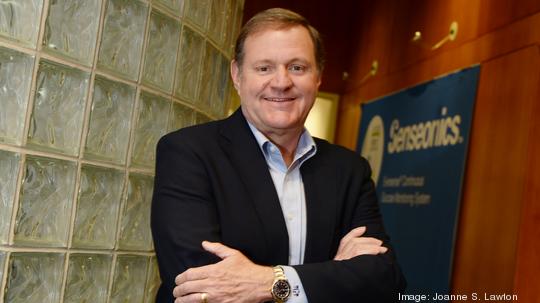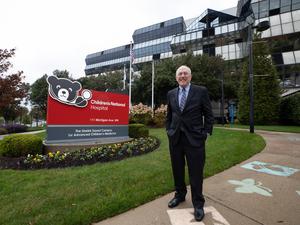
Senseonics Holdings Inc. just scored a big win with one of the country’s largest health insurance companies.
The Germantown med-tech firm said Wednesday that Indianapolis-based Elevance Health Inc., formerly Anthem Inc., is now providing coverage for implantable continuous glucose monitoring (CGM) systems — including the local firm’s device, a long-lasting implant that helps diabetes patients manage their blood-sugar levels.
Senseonics’ long-term implant, Eversense, is already included in health plans for about 250 million people, thanks to a growing group of private payors — Cigna Corp., CVS-owned Aetna, Humana and Health Care Service Corp. — now covering the device. Elevance’s decision expands that access to an additional 45 million patients and “demonstrates broad-based coverage across the United States from the majority of commercial payers, enabling their members to access the benefits of the long-term Eversense CGM System,” Senseonics said in its announcement.
The local medical device maker, already with a 90-day CGM system on the market, earned the Food and Drug Administration’s approval in February to sell its 180-day version of the device — an implant that works for that long without needing to be replaced. That new version, dubbed Eversense E3, is also launching in Europe.
The company is working with Basel, Switzerland’s Ascensia Diabetes Care as its commercial partner for the global rollout. That 2020 deal had helped Senseonics reset after previously suspending commercial sales and initiating a strategic review of the business.
Elevance’s coverage decision only helps propel Senseonics forward in the competition to make the longest-lasting CGM system widely available. The Maryland company is a relatively smaller player in the global CGM market, which per one estimate is projected to reach $13.24 billion by 2028.
Senseonics is fighting for market share with Dublin’s Medtronic, Chicago’s Abbott Laboratories and San Diego’s DexCom. Their devices, inserted by the patient, sit close to the skin’s surface for a couple of weeks, whereas the newest Senseonics system is surgically implanted under the skin by a doctor for six months. Senseonics is also developing a version of Eversense for patients to wear for up to a year.
Senseonics, scheduled to report second-quarter earnings next week, had generated $2.5 million in revenue for the first quarter of 2022, down from a total $2.8 million in revenue for the first quarter of 2021. The business predominantly generates revenue from sales to Ascensia through the partners’ agreement. It closed the first quarter with $166.9 million in cash.
Senseonics (NYSE: SENSE) saw its share price shoot up 26% to a high of $1.60 Wednesday on the news. The stock has been hovering around $1 in recent months.




